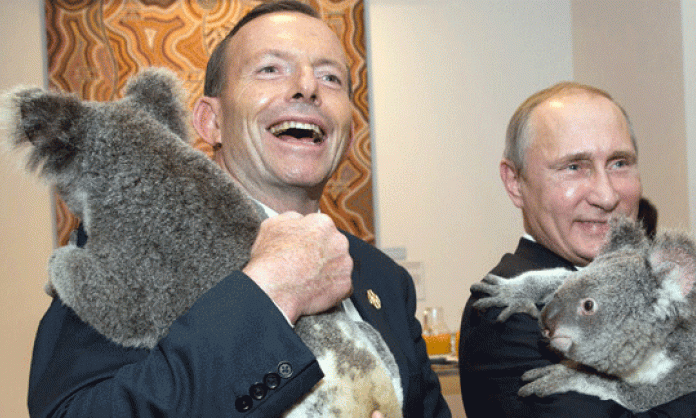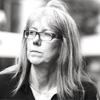The G20 came to Brisbane and bickered – Obama, Abbott and Abe lectured the Chinese on Asian-Pacific security. The British, the Canadians and the Germans lectured the Russians on Ukraine. The Russians brought warships. The US and China lectured Australia about climate change. In the background there were sanctions on Russia, and Argentina had defaulted again on its international debts.
Yet, behind all this shirtfronting, there was also ruling class unity.
The fact that the rulers of the most powerful nations in the world cannot hold a forum like the G20 without first turning the host city into a ghost city tells you everything about their fear and hatred of the masses.
There is a reason that the G20 has become better known for the protests it attracts than for anything else. Even the former deputy managing director of the IMF, John Lipsky, decried that the G20 leaders had failed to convince their own citizens of the forum’s relevance.
When Joe Hockey emphasised the centrality of tax reform at this summit, it was not because corporate tax evasion is unfair, but to sell the summit’s anti-working class outcomes: “It’s a vital component in people believing and trusting in the legitimacy of their governments. Why should any citizen feel respectful or loyal to a system of government, or be a genuine participant in building a better society, if they feel that they are expected to shoulder burdens which others avoid?”
It is difficult to hide the class divide. At Australia’s possibly foolhardy initiative, the G20 action plan now omits previous references to the need for “inclusive” economic growth that does not exacerbate inequality. No wonder. While they may jostle for position, all the G20 states are united by increasing inequality.
The top 5 percent everywhere are increasing their wealth. In China they have 23 percent of total household income, while the bottom 5 percent have just 0.1 percent. In Britain income inequality has risen faster than anywhere else in the OECD. Attacks on the working class have made it, according to the Boston Consulting Group, “the lowest cost manufacturing economy of Western Europe”.
In the US, wealth inequality is at near record levels, with the top 0.1 percent worth as much as the bottom 90 percent. In the year that Australia has held the presidency of the G20, the total wealth of the G20 increased by $17 trillion but the richest 1 percent of people got $6.2 trillion of this (36 percent of the total increase).
Meanwhile, in country after country, real wages stagnate. Favoured code words in the communiques of bodies like the G20 are more and more understood by workers worldwide to mean that we will pay. So “eliminating unfavourable regulatory conditions” means smashing unions, “increasing the efficiency of existing infrastructure” means job losses and speed-ups for the workers who remain, and “enhanced labour market flexibility” means both.
While Obama lectured the US’s major competitor states like China and Russia that the “rule of force must give way to the rule of law”, he must have expected his audience to forget about the recent mass protests in Ferguson, Missouri, resulting from yet another police murder of an unarmed Black man.
Obama’s speech, delivered at the University of Queensland, also included a spirited defence of democracy. “We believe in democracy – that the only real source of legitimacy is the consent of the people, that every individual is born equal with fundamental rights, and that it is the responsibility of governments to uphold these rights.”
Pity he’d just flown in from Burma. Burmese democracy and human rights activists have challenged Obama’s rosy view of regime president Thein Sein, with whom the US now has a friendly relationship.
There was more of this window-dressing from Xi Jinping, president of China, in the 14 November Australian Financial Review: “At the current stage, China is comprehensively deepening reform and opening up, promoting rule of law on all fronts and making relentless efforts to achieve the ‘two centenary goals’ (i.e. doubling our GDP and per capita urban and rural income of 2010 and completing the building of a moderately prosperous society in all aspects by 2020, and turning China into a harmonious modern socialist country that is strong, prosperous [and] democratic).”
The mass Hong Kong protests for democratic rights that were repressed by the Chinese authorities with police violence, pepper spray, tear gas and triad gangsters must have escaped his notice. And clearly the ingratitude of the mainland Chinese working class knows no bounds: strike levels are currently increasing.
Despite complaints about its parochialism, Abbott’s opening speech was not just for a domestic audience. Who among the assembled world leaders had not shared Abbott’s complaint that “it doesn’t matter what spending program you look at, it doesn’t matter how wasteful that spending program might appear, there are always some people in the community who vote, who love that program very much”? Damn the great unwashed for wanting health care, pensions and education!
Marx termed the capitalist class “a band of warring brothers”, meaning that, despite the competition between them, they had a common interest in maintaining capitalism and the exploitation of the working class.
The leaders of the largest economies in the world are that band incarnate.











